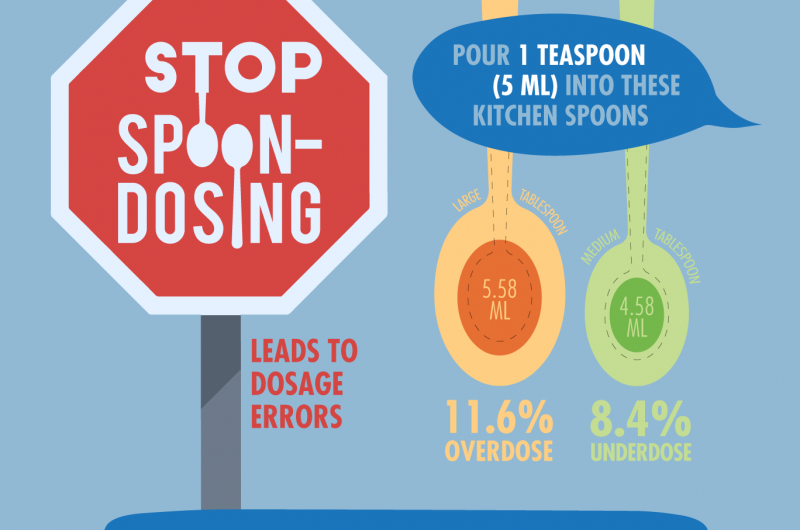Changing dosing instructions from teaspoon to milliliter could reduce the risk of dosage errors by 50%

You grab for the cough syrup for some relief from that nasty lingering cold, what do you measure the dose with? Many of us use teaspoons or table spoons to measure out doses for ourselves and our children but this results in dosage errors! This new study finds that errors in estimating doses can be mitigated by changing the serving measurements on the dosage facts panel from teaspoons to milliliters.
A previous study by authors Koert van Ittersum, PhD at the University of Groningen (The Netherlands) and Brian Wansink, PhD of Cornell University found that when individuals use teaspoons to measure medicine they tend to under-serve by 8.4% and when using table spoons they over-serve by 11.6%.
For this study, Van Ittersum and Wansink proposed that by writing the Drug Facts and dosage information in milliliters, which are more difficult to estimate visually, people would choose more accurate measuring devices to measure out doses and would be less likely to make dosage errors. Of the 177 young adults that participated in this study, 34.5% reported using kitchen spoons most frequently to measure medicine. The researchers found that when these study participants were given dosage information in teaspoons 60.9% chose a teaspoon to measure with while none of them chose the milliliter measuring cup. However, when the dosage recommendation was given in milliliters the teaspoon and the measuring cup were equally popular among this group. These results indicate that the risk of dosage error decreases by around 50% by simply changing the recommended units of measurement from tea spoons to milliliters.
"When measuring medicine for ourselves or our children, we often use regular kitchen spoons but they are not accurate measuring instruments," explains lead author Koert van Ittersum, "While we feel that we can estimate teaspoon doses, milliliters are much harder to estimate visually, therefore people are more likely to use accurate measuring spoons or cups when given dosage information in milliliters." In conclusion, the authors recommend that the US Food and Drug Administration mandates that the pharmaceutical industry not use teaspoons on Drug Facts and dosing information. They also emphasize the importance of not spoon-dosing at home, instead using the measuring cups that typically come with liquid medicine.
More information: Van Ittersum, Koert and Brian Wansink (2016). Stop Spoon Dosing: Milliliter Instructions Cause Fewer Dosage Errors than Spoon Instructions on Liquid Medications. BMC Research Notes, forthcoming.


















